Meetings
Spring 2012 CUNY Digital Studies/Digital Humanities Seminar Schedule
On 26, Apr 2012 | In Meetings | By Charlie Edwards
We are delighted to announce (though belatedly!) our full schedule of events for Spring 2012, sponsored by the Center for the Humanities at the CUNY Graduate Center. We have three exciting presentations still to come in May and very much hope you will be able to join us.
All events are free and open to the public, and take place at the CUNY Graduate Center.
Friday, February 17, 4pm-6pm: “Debates in the Digital Humanities: A Panel Discussion”
Chair: Matthew K. Gold and Panelists: Stephen Brier, Charlie Edwards & David Greetham
Room 4406, CUNY Graduate Center
Sponsored by the Ph.D. Program in English
The semester began with a panel discussion kindly hosted by CUNY Graduate Center’s English PhD Program as part of the program’s “Friday Forum” series. The topic was Debates in the Digital Humanities, recently published by the University of Minnesota Press, and edited by our own Matthew K. Gold.
Monday, April 2, 6:30pm-8:30pm: “Risking Failure by Playing Around with Digital Pedagogy”
Katherine D. Harris (San José State University)
Room 6417, CUNY Graduate Center
For our second event of the semester, we welcomed CUNY alum Katherine D. Harris to speak on DH in the undergraduate classroom. Her talk focused on her experiences with a student-driven project that is run outside the institutional boundaries of a traditional English Department curriculum and the risks, failures, and disappointments that are inherent in adopting a collaborative and playful learning environment.
Tuesday, May 1, 6:30pm-8:30pm: “How do you document real life?: Discovering the Digital Creative Process of Jonathan Larson’s RENT”
Doug Reside, New York Public Library
Room 6496, CUNY Graduate Center
Doug Reside will discuss his attempts to reconstruct the creative process that produced the musical RENT by recovering and studying the digital drafts from Jonathan Larson’s original floppy disks. Reside will also offer some reflections on his newly minted position as Digital Curator of the Performing Arts at New York Public Library and will suggest strategies libraries may employ for dealing with the coming onslaught of born digital research collections.
Tuesday, May 8, 6:30pm-8:30pm: “Digital Paleography at CUNY: The Spanish Paleography Digital Teaching and Learning Tool”
Ramona Hernández and Anthony Stevens-Acevedo, CUNY Dominican Studies Institute, City College
Room 6496, CUNY Graduate Center
The leaders of the Spanish Paleography Digital Teaching and Learning Tool project, funded by a Digital Humanities Start-Up Grant awarded by the NEH’s Office of Digital Humanities, will join us to discuss their work to date. The project aims to teach users the paleographic skills required to decode early-modern Spanish manuscripts.
Thursday, May 31, 6:30pm-8:30pm: “Digital Humanities and Natural Disasters: Archiving Catastrophe”
Paul Millar (University of Canterbury, New Zealand), Tom Scheinfeldt (George Mason University), and Steve Brier (CUNY Graduate Center)
Room 6496, CUNY Graduate Center
Three leading Digital Humanists will join us in a panel discussion that addresses DH-related efforts to archive and preserve materials after catastrophic events. They will discuss the CEISMIC Canterbury Earthquakes Digital Archive, the Hurricane Digital Memory Bank, and the September 11 Digital Archive. All three projects seek not only to preserve the digital record of the events, but to foster positive legacies by allowing the people affected to tell their stories in their own words, which as part of the historical record will remain accessible to a wide audience for generations to come.
April 2: Katherine D. Harris on “Risking Failure by Playing Around with Digital Pedagogy”
On 29, Mar 2012 | In Meetings | By Charlie Edwards
Please join us on Monday, April 2, 6:30-8:30pm when we will be delighted to welcome CUNY alum Katherine D. Harris (San José State University) to speak on DH in the undergraduate classroom.
Details are below – we look forward to seeing you!
Time & Place: Monday April 2, 2012, 6:30-8:30pm, Room 6417, CUNY Graduate Center
Katherine D. Harris: “Risking Failure by Playing Around with Digital Pedagogy”
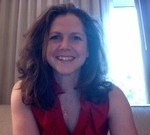 In Planned Obsolescence: Publishing, Technology and the Future of the Academy, Kathleen Fitzpatrick warns that academic futures need to be governed by expansive change: “We need to think less about completed products and more about text in process; less about individual authorship and more about collaboration; less about originality and more about remix; less about ownership and more about sharing” (83). If scholarly communication needs this type of revision, then I suggest so too does undergraduate pedagogy.
In Planned Obsolescence: Publishing, Technology and the Future of the Academy, Kathleen Fitzpatrick warns that academic futures need to be governed by expansive change: “We need to think less about completed products and more about text in process; less about individual authorship and more about collaboration; less about originality and more about remix; less about ownership and more about sharing” (83). If scholarly communication needs this type of revision, then I suggest so too does undergraduate pedagogy.
But, something happens when we start incorporating Digital Humanities and digital pedagogy into the undergraduate classroom, something that’s not embraced in academia: failure. Digital Humanities scholarship requires collaboration and playfulness – both risky endeavors in any Humanities classroom because of the need for assessment, structure, rules, and bounded learning. But, what happens when we modify some of the institutional structures and student learning outcomes to accommodate these two methods for learning and add into the curriculum a requirement for building something, anything, within the undergraduate classroom? The students collaborate, play around, and build materials for public scholarship, but we all risk failure – and then learn from it.
Using the Beard-Stair Project as an example, I would like to discuss a student-driven project that is run outside the institutional boundaries of a traditional English Department curriculum and the inherent risks, failures, and disappointments that are integral to this type of productive learning environment. Though the students collaborate, play around, and build materials for public scholarship, both I and the students have to accept some failures that are then assimilated into the project.
Katherine D. Harris (Tenured Assistant Professor, English and Comparative Literature, San José State University) specializes in Romantic-Era and 19th-century British literature, women’s authorship, the literary annual, 19th-century history print culture and history of the book, textuality, editorial theory, Digital Humanities, and pedagogy. Her work ranges from pedagogical articles on using digital tools in the classroom to traditional scholarship on a “popular” literary form in 19th-century England. Much of her work can be explored on her research blog: http://triproftri.wordpress.com.
Many thanks to The Center for the Humanities at The Graduate Center, CUNY for sponsoring this event.
December 12: DH and Graduate Education–Bethany Nowviskie (UVa) on “The Praxis Program at the Scholars’ Lab”
On 04, Dec 2011 | In Meetings | By Matthew K. Gold
Please join us for our final meeting of the semester on Monday, December 12, 6:30-8:30pm at the CUNY Graduate Center (Room 9204) for an exciting session on Digital Humanities and Graduate Education:
Bethany Nowviskie, “The Praxis Program at the Scholars’ Lab.” 
Praxis is a radical re-imagining of the methodological training offered to graduate students in the Scholars’ Lab at the University of Virginia Library. Alongside our well-established program for Grad Fellows in Digital Humanities, six new students are apprenticing with us to design and build Prism, a tool for “crowd-sourced” textual analysis, visualization, and interpretation. Our goal — as we test a hands-on curriculum live and in public — is to spark conversation about methodological training in the humanities. How should we prepare the next generation of knowledge workers for emerging faculty positions and alternative academic careers?
Readings/Links:
- http://praxis.scholarslab.org/
- http://nowviskie.org/2011/praxis-and-prism/
- http://www.uvasci.org/current-institute/ (see this year’s full report: http://www.uvasci.org/wp-content/uploads/2011/04/SCI9-report.pdf )
- http://mediacommons.futureofthebook.org/alt-ac/ (see especially Bethany’s introduction: “Two Tramps in Mud Time” http://mediacommons.futureofthebook.org/alt-ac/pieces/introduction-two-tramps-mud-time )
Bethany Nowviskie is director of digital research and scholarship at the University of Virginia Library Scholars’ Lab and associate director of the Scholarly Communication Institute. She is the editor of #Alt-Academy: Alternative Careers for Humanities Scholars.
Ben Vershbow on “NYPL Labs: Hacking the Library” [video]
On 28, Nov 2011 | In Meetings, Video | By Matthew K. Gold
The CUNY Digital Humanities Initiative is happy to release video from our November 14, 2011 event on Digital Humanities in the Library with Ben Vershbow of the New York Public Library. Ben’s talk was titled “NYPL Labs: Hacking the Library.” Please read our original announcement for more details on the talk. We thank Ben for an excellent session and a lively Q&A!
November 14: DH in the Library – Ben Vershbow (NYPL) on “NYPL Labs: Hacking the Library” (apologies for the focus issues at the start of the video; it gets better!)
[vimeo]http://vimeo.com/32399999[/vimeo]
Q&A Session
[vimeo]http://vimeo.com/32400612[/vimeo]
November 14: DH in the Library–Ben Vershbow (NYPL) on “NYPL Labs: Hacking the Library”
On 08, Nov 2011 | In Meetings | By Matthew K. Gold
Please join us on Monday, November 14, 6:30-8:30pm at the CUNY Graduate Center (Room C201) for an exciting session on DH in the Library:
 Ben Vershbow (New York Public Library)
Ben Vershbow (New York Public Library)
“NYPL Labs: Hacking the Library”
The digital humanities and libraries have a deeply intertwined history. DH centers frequently are allied with or physically housed in library infrastructure, and many early digital humanities projects were in essence digital librarianship: organizing information online, building accessible digital archives, preparing and encoding texts for the world wide web. To this day, libraries look to digital humanists for new theories and methodologies in areas as diverse as digital preservation, linked open data, and geospatial information.
The New York Public Library is something of an outlier in this history. A public research institution, not beholden to a faculty or student body, its user base is an entire city, and also a vast array of thinking people around the world. It is an incubator for books, technologies, businesses and works of art. Thousands of scholars, writers, artists, students, workers and job seekers use its reading rooms and free internet access to pursue vectors of thought and creation. Its digital collections (still a tiny fraction of overall holdings) are accessed through web browsers around the world. Yet only recently has NYPL begun to actively engage with the digital humanities community and to adapt some of its ideas and methods to the immense task of redefining the public library for the information age.
Since 2007, the Library has been actively modernizing its digital infrastructure: embracing open source software and agile development processes, laying the foundations for a trusted digital repository, and working blogging and social media into its service models. NYPL Labs is a recently formed unit that is charged with building on these advances through bold experimentation with new technologies, development of advanced interfaces and research tools, and deep collaboration with curators and the public. This talk will cover current and future projects of the Labs, and through the lens of these first efforts, ponder what an urban public research library might look like a few decades down the road.
Ben Vershbow is a New York-based digital humanities geek and theater artist. For four years, he was editorial director at the Institute for the Future of the Book, working with Bob Stein. Currently, he is manager of NYPL Labs, a digital innovation unit at The New York Public Library, and runs a theater collective, Group Theory.
Oct 18: DH in the Classroom: Shannon Mattern & Mark Sample
On 13, Oct 2011 | In Meetings | By Charlie Edwards
Please join us on Tuesday October 18, 2011, when we are excited to welcome two innovative practitioners of “Digital Humanities in the Classroom” – The New School’s Shannon Mattern, and Mark Sample, of George Mason University.
Details are below; we look forward to seeing you there!
Time & Place: Tuesday October 18, 2011, 6:30-8:30pm, Room 6496, CUNY Graduate Center
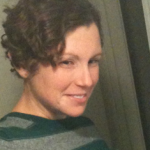 Shannon Mattern, “Beyond the Seminar Paper: Setting New Standards for New Forms of Student Work”
Shannon Mattern, “Beyond the Seminar Paper: Setting New Standards for New Forms of Student Work”
By exploring how new technologies might function as teaching tools or platforms on which students can demonstrate their learning, we expand the means and ends of education. With this increasing openness of pedagogical forms comes the responsibility to justify our choices and develop new forms of criticism and modes of assessment. Using several of my own courses as examples, I’ll address the challenges and potential benefits of holding students, and ourselves, accountable for the choices we make in our classrooms and advising relationships. I’ll focus on the value of (1) student documentation of their learning process, and in particular (2) students’ justification of their chosen methods and modes of presentation; (3) collaborative development of criteria for evaluation; and (4) connecting our work in the classroom to larger public problems and public institutions.
Suggested readings:
- Shannon Mattern, “Trying to Wrap My Head Around the Digital Humanities, Part 2” Words in Space (June 23, 2010)
- Shannon Mattern, “Evaluating Multimodal Student Work” Words in Space (August 11, 2010)
- Steve Anderson, “Regeneration: Multimedia Genres and Emerging Scholarship” Institute for Multimedia Literacy (June 29, 2008)
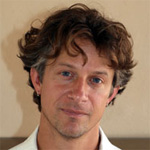 Mark Sample, “Building and Sharing When You’re Supposed to be Teaching”
Mark Sample, “Building and Sharing When You’re Supposed to be Teaching”
My pedagogy can increasingly be summed up in five words: “Make things. And share them.” I will talk briefly about my move toward assignments and projects in the undergraduate humanities classroom that emphasize making—as opposed to simply writing. I will also address the sharing aspect of these projects, which I see as a critical intervention into the enclosured experience most students have in higher education.
Suggested readings:
- “Student Contracts for Digital Projects” by Jeffrey McClurken
- “Integrating a Digital Project Into a Class: Deciding on a Project” by Amy Cavender
- “Using a Graphic Illustrator in Higher Education: Comic Life” by Billie Hara
Shannon Mattern is an Assistant Professor of Media Studies and Film at The New School and was, from 2006 to 2009, director of the Masters in Media Studies program. Her research and teaching focus on relationships among media, architectural, and urban space. Her book, The New Downtown Library, was supported by the Graham and Mellon foundations and published by the University of Minnesota Press in 2007. She has also published in several edited volumes and in journals including Space and Culture, Public Culture, and the Journal of Architectural Education. Her classes, which regularly involve the use of digital media, have resulted in the creation of exhibitions and installations and, in Fall 2010, thanks to the support of an Innovations in Education grant from The New School, a prototype of an open-source mapping tool for scholarly urban research. She is a recipient of The New School’s 2011 Distinguished University Teaching Award.
Mark Sample is an Assistant Professor in the Department of English at George Mason University, where is he also an affiliated faculty member with GMU’s undergraduate Honors College, its Cultural Studies doctoral program, and the Center for History and New Media. His research focuses on contemporary fiction, electronic literature, and videogames. His examination of the representation of torture in videogames was recently published in Game Studies, and he is working on a collaboratively written book about the Commodore 64 home computer. Mark has work in Hacking the Academy, a crowdsourced scholarly book forthcoming in print by the digitalculturebooks imprint of the University of Michigan Press. Mark has recently remixed the entire text of Hacking the Academy as Hacking the Accident. Mark is also an outspoken advocate of open source pedagogy and open source research. In recognition of his commitment to innovation in teaching, he was the recipient of George Mason’s 2010 Teaching Excellence Award. He is a regular contributor to ProfHacker, a feature at the Chronicle for Higher Education that focuses on pedagogy and scholarly productivity, and he also writes for Play the Past, a collaboratively edited scholarly blog that explores the intersection of cultural heritage and games.
This event is co-sponsored by The CUNY Digital Humanities Initiative and the CUNY Digital Studies Group, in partnership with The Center for the Humanities at The Graduate Center, CUNY.
September 14: Digital Humanities in Practice: Games-Based Learning in Practice at CUNY
On 09, Sep 2011 | In Meetings | By Matthew K. Gold
Digital Studies / Digital Humanities Seminar
Digital Humanities in Practice: Games-Based Learning in Practice at CUNY
Wednesday, September 14th, 6:30 pm – 8:30 pm
Room C197
 |
The CUNY Games Network connects educators from every campus and discipline at the university who are interested in games, simulations, and other forms of interactive teaching. In this session we’ll share the research behind games-based learning, and explore practical pedagogical applications of both digital and non-digital games. Speakers include:
Joe Bisz is an Associate Professor in the English Department at Borough of Manhattan Community College.
Kathleen Offenholley is an Assistant Professor in the Mathematics Department at Borough of Manhattan Community College.
Leah Potter is Co-Director of Teaching American History Programs in the American Social History Project/Center for Media and Learning at the CUNY Graduate Center.
Maura A. Smale is an Assistant Professor and Information Literacy Librarian in the Library Department at New York City College of Technology. |
| Free and open to the public. All events take place at The Graduate Center, CUNY, 365 Fifth Ave btwn 34th & 35th. The building and the venues are fully accessible. For more information please visit http://centerforthehumanitiesgc.org/ or call212.817.2005 or e-mail [email protected] |
Fall 2011 CUNY Digital Studies/Digital Humanities Seminar Schedule
On 09, Sep 2011 | In Meetings | By Matthew K. Gold
We’re delighted to announce our schedule of seminar meetings for the Fall 2011 semester, which are centered on the theme of “Digital Humanities in Practice.” We’ll be looking at specific instantiations of DH at CUNY, in libraries, in the classroom, and in graduate education. We hope you can join us!
Fall 2011 CUNY Digital Studies/Digital Humanities Seminar Schedule
Sponsored by the Center for the Humanities at the CUNY Graduate Center
All events are free and open to the public, and all will take place at the CUNY Graduate Center
- Wednesday, September 14, 6:30-8:30pm: Digital Humanities in Practice: Games-Based Digital Learning at CUNY
Speakers from the CUNY Games Network – Joe Bisz (BMCC), Kathleen Offenholley (BMCC), Leah Potter (CUNY Graduate Center), Maura A. Smale (City Tech)
Tuesday, October 18, 6:30-8:30pm: Digital Humanities in the Classroom
Shannon Mattern (New School), “Beyond the Seminar Paper: Setting New Standards for New Forms of Student Work”
Mark Sample (George Mason), “Building and Sharing When You’re Supposed to be Teaching”
Monday, November 14, 6:30-8:30pm: Digital Humanities in the Library
Ben Vershbow (New York Public Library), (Title TBA)
Monday, December 12, 6:30-8:30pm: Digital Humanities and Graduate Education
Bethany Nowviskie (University of Virginia), “The Praxis Program at the Scholars’ Lab”
Also, please consider attending these related events:
- Monday, September 12, 6:30-8:30:: Cathy N. Davidson (Duke), Now You See It: How the Brain Science of Attention Will Transform the Way We Live, Work, and Learn
Friday, September 30, 4:45-6:30: CUNY Graduate Center Ph.D. Program in English Friday Forum Series: Debates in the Digital Humanities: Issues from the Forthcoming Collection for the University of Minnesota Press featuring Stephen Brier, Charlotte Edwards, David Greetham. Moderated by Matthew K. Gold NOTE: This event has been rescheduled for the Spring 2012 semester.
May 4: Douglas Armato on “Digital Media’s Prehistory and the Nine Lives of Scholarly Publishing”
On 29, Apr 2011 | In Meetings | By Charlie Edwards
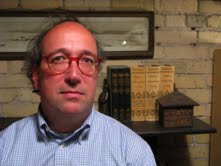 Please join us on Wednesday, May 4, 2011, when we are excited to welcome Douglas Armato, Director of the University of Minnesota Press and Editor of its Digital Culture Studies List, to speak on “Digital Media’s Prehistory and the Nine Lives of Scholarly Publishing.”
Please join us on Wednesday, May 4, 2011, when we are excited to welcome Douglas Armato, Director of the University of Minnesota Press and Editor of its Digital Culture Studies List, to speak on “Digital Media’s Prehistory and the Nine Lives of Scholarly Publishing.”
Scholarly publishing has survived through adaptation and economic reinvention and now faces new challenges, and opportunities, as the market for ebooks reaches escape velocity and the emergence of the digital humanities reconfigures academic work. Doug’s talk will discuss how university presses are adapting both individually and collectively to the digital environment and how presses remain a vital counterforce to the diminished status of of the humanities in higher education.
This will our last public event of the semester – we very much hope you can attend. We would also like to take the opportunity to thank all of you who have participated in CUNY DHI, online or in person, and helped to make the group’s first year such a success. We look forward to next year’s activities!
Doug’s talk is co-sponsored by The CUNY Digital Humanities Initiative and the CUNY Digital Studies Group, in partnership with The Center for the Humanities at The Graduate Center, CUNY.
Time & Place: Wednesday, May 4, 2011, 6:30-8:30pm, Room C201/202, CUNY Graduate Center
March 30: Kathleen Fitzpatrick on “Peer Review, Open Scholarship, and the Digital Humanities”
On 25, Mar 2011 | In Meetings | By Charlie Edwards
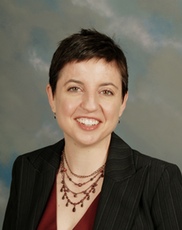 We are delighted that on Wednesday, March 30 we will be hosting Kathleen Fitzpatrick of Pomona College, who will speak on “Peer Review, Open Scholarship, and the Digital Humanities.”
We are delighted that on Wednesday, March 30 we will be hosting Kathleen Fitzpatrick of Pomona College, who will speak on “Peer Review, Open Scholarship, and the Digital Humanities.”
Peer review is the sine qua non of the academy: we use it in nearly everything we do, and cannot imagine what scholarship would be without it. But for such a crucial component of the ways that we work, none of us are wholly satisfied with it, either. Moreover, conventional forms of peer review are often misaligned with the kinds of open scholarship being produced in the digital humanities. This talk takes a brief look at the history and the present criticism of peer review as a means of exploring its future, particularly as scholarly publishing moves increasingly online: what might peer review that took advantage of the reputation economies developed within networked communities look like, and how might it help scholarly communication flourish?
Kathleen Fitzpatrick is Professor of Media Studies at Pomona College. She is author of The Anxiety of Obsolescence: The American Novel in the Age of Television (2006) and Planned Obsolescence: Publishing, Technology, and the Future of the Academy, forthcoming from NYU Press. Planned Obsolescence was published using an experimental open peer review process by MediaCommons Press, a project of the digital scholarly network MediaCommons, co-founded by Kathleen. She has published in journals including the Journal of Electronic Publishing, PMLA, Contemporary Literature, and Cinema Journal, and has blogged at Planned Obsolescence since 2002.
Kathleen’s talk is co-sponsored by The CUNY Digital Humanities Initiative and the CUNY Digital Studies Group, in partnership with The Center for the Humanities at The Graduate Center, CUNY.
Time & Place: Wednesday, March 30, 2011, 6:30-8:30pm, Room 6417, CUNY Graduate Center

 Welcome to the blog of the CUNY DHI, an effort to build momentum and community around Digital Humanities practitioners at CUNY. We hope you'll join us at our upcoming events and that you'll follow this blog to hear about the latest news in the field.
Welcome to the blog of the CUNY DHI, an effort to build momentum and community around Digital Humanities practitioners at CUNY. We hope you'll join us at our upcoming events and that you'll follow this blog to hear about the latest news in the field.



Recent Comments